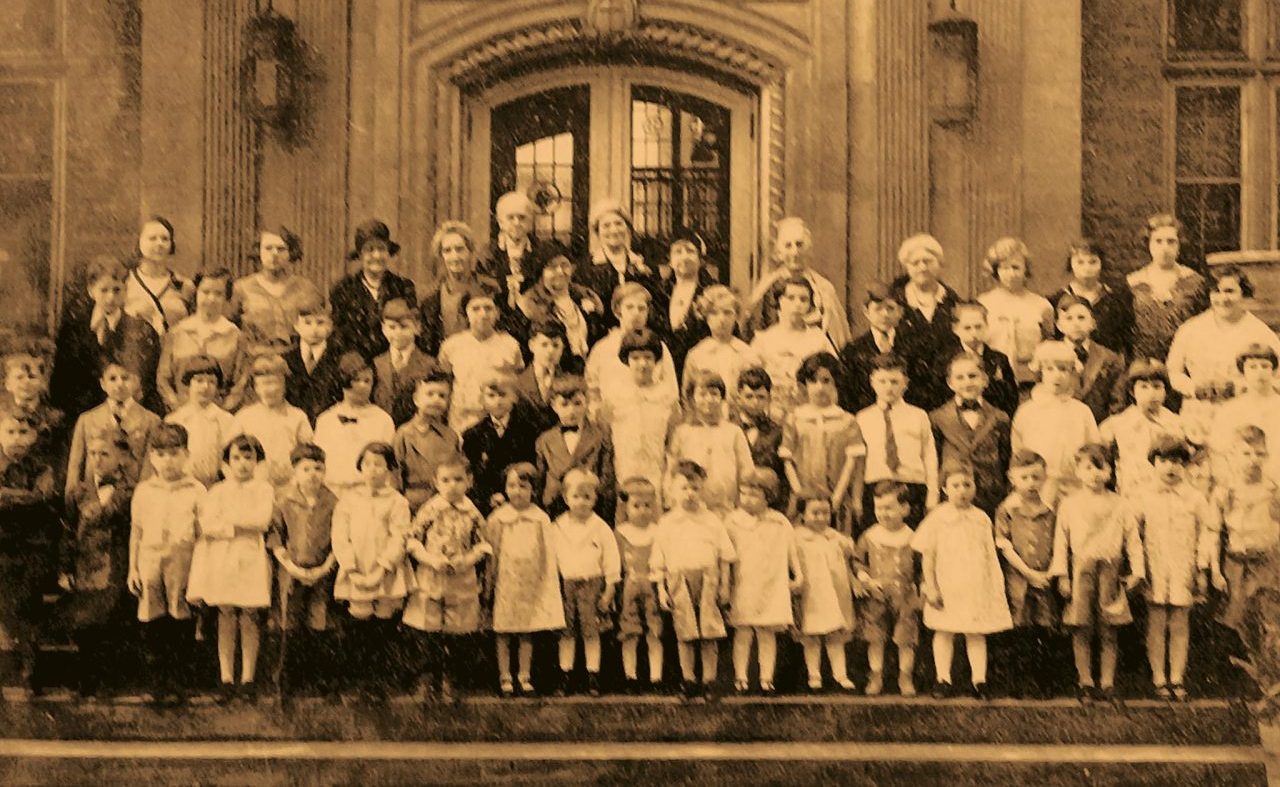Creating a family by bringing up a child born to another person is not a recent invention. Moses was brought up by the daughter of the Pharaoh. Several Roman emperors were orphaned and brought up by relatives other than their parents. Alexander Hamilton lost his parents as a young teen and grew up in the household of a wealthy merchant.
But none of these, nor the hundreds and perhaps thousands of other early adoptions were legal adoptions. When a child was orphaned or left alone, a relative or someone else in the community would often take them in and bring them up as their own child, but they didn’t do any special paperwork. They didn’t bring their case to court for a judge to decide. They didn’t wait for permission. Informal adoptions took place every day, and sometimes they were an excellent experience for the child. Sometimes they were more like slavery than like a family; a child might be brought into a home and treated like a servant rather than like a member of the family.
The Adoption of Children Act
In 1851, Massachusetts passed the first modern adoption law, the Massachusetts Adoption of Children Act. The interesting thing about this law is how similar it was to modern adoption laws.
Sect. 1. Any inhabitant of this Commonwealth may petition the judge of probate, in the county wherein he or she may reside, for leave to adopt a child not his or her own by birth.
This is true today in Arkansas. While some states have stricter laws, anyone in Arkansas can petition to adopt a child. Either the adoptive parent or the child must be a resident of Arkansas, just as the Massachusetts law required the petitioner to live in Massachusetts.
Sect. 2. If both or either of the parents of such child shall be living, they or the survivor of them, as the case may be, shall consent in writing to such adoption: if neither parent be living, such consent may be given by the legal guardian of such child; if there be no legal guardian, no father nor mother, the next of kin of such child within the State may give such consent; and if there be no such next of kin, the judge of probate may appoint some discreet and suitable person to act in the proceedings as the next friend of such child, and give or withhold such consent.
In Arkansas today, the parents of a child must give written consent to the child’s adoption. Judges don’t appoint a friend of the child, but can allow the adoption if the parents cannot be found.
Sect. 3. If the child be of the age of fourteen years or upwards, the adoption shall not be made without his or her consent.
In Arkansas, a child of ten or older must consent to his or her own adoption.
Sect. 4. No petition by a person having a lawful wife shall be allowed unless such wife shall join therein, and no woman having a lawful husband shall be competent to present and prosecute such petition.
This is usually true in Arkansas, but it is not a hard-and-fast rule. For example, if the couple has been separated or one partner is no longer in contact with their spouse, the court may allow a married person to adopt as a single parent.
Sect. 5. If, upon such petition, so presented and consented to as aforesaid, the judge of probate shall be satisfied of the identity and relations of the persons, and that the petitioner, or, in case of husband and wife, the petitioners, are of sufficient ability to bring up the child, and furnish suitable nurture and education, having reference to the degree and condition of its parents, and that it is fit and proper that such adoption should take effect, he shall make a decree setting forth the said facts, and ordering that, from and after the date of the decree, such child should be deemed and taken, to all legal intents and purposes, the child of the petitioner or petitioners.
In Arkansas, a home study is required to make sure that the adoptive parents can provide a good home for the child, and once the adoption takes place, the adopted child is “to all legal intents and purposes,” the child of the adoptive parents.
Sect. 6. A child so adopted, as aforesaid, shall be deemed, for the purposes of inheritance and succession by such child, custody of the person and right of obedience by such parent or parents by adoption, and all other legal consequences and incidents of the natural relation of parents and children, the same to all intents and purposes as if such child had been born in lawful wedlock of such parents or parent by adoption, saving only that such child shall not be deemed capable of taking property expressly limited to the heirs of the body or bodies of such petitioner or petitioners.
The Massachusetts law confirms that the adopted child is legally the child of the adopted parents, just as under the Arkansas adoption laws. The 1851 law also considers the possibility of an estate being entailed to biological heirs only, a situation which just doesn’t come up much in modern Arkansas.
Sect. 7. The natural parent or parents of such child shall be deprived, by such decree of adoption, of all legal rights whatsoever as respects such child; and such child shall be freed from all legal obligations of maintenance and obedience, as respects such natural parent or parents.
The parental rights of the biological parents end once an adoption takes place in Arkansas.
Sect. 8. Any petitioner, or any child which is the subject of such a petition, by any next friend, may claim and prosecute an appeal to the supreme judicial court from such decree of the judge of probate, in like manner and with the like effect as such appeals may now be claimed and prosecuted in cases of wills, saying only that in no case shall any bond be required of, nor any costs awarded against, such child or its next friend so appealing.
This means the appeal process follows the same steps and has the same potential outcomes as appeals from decisions about wills.
Modern adoption
Our takeaway from this interesting historical document is simple: the modern legal adoption has been around in much its present form for a long time, which tells us that it is a process that works well. Everyone involved in an adoption must keep in mind the best interests of the child, the birth parents, and the adoptive parents. The 1851 law and modern laws alike make these efforts.
Heimer Law has the experience and the expertise to support you through the entire process. Call (479) 225-9725 for a free consultation.
Inquiry Form
